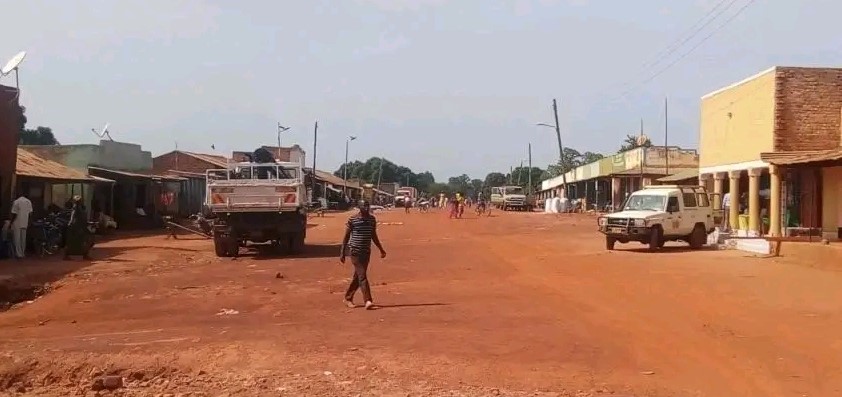Traders in Tambura County, Western Equatoria State, say business has collapsed due to persistent insecurity, a foreign currency shortage, and poor roads, leaving markets nearly deserted.
Tambura is one of the counties in Western Equatoria facing violence and persistent insecurity since the beginning of the year due to political differences and communal violence.
Several traders told Radio Tamazuj on Monday that ongoing violence and movement restrictions in the county have forced many civilians to flee the area.
John Tito, chairperson of the county Chamber of Commerce, said the situation has worsened in recent weeks as traders struggle to import goods because of insecurity on main roads and a soaring U.S. dollar exchange rate.
“The business community is suffering. There are no goods to sell because of insecurity, poor roads, and the high dollar rate,” Tito said. “One hundred US dollars now stand at 600,000 South Sudanese pounds (SSP), yet the currency is not even available in Tambura.”
He said most traders now depend on soldiers traveling to Yambio to bring essential items for sale.
Tito said prices for basic commodities have sharply increased, with a bar of soap costing 7,000 SSP and a packet of salt selling for 2,500 SSP in Tambura town. He said other rural areas cannot even access these items because of insecurity and poor roads.
He appealed to the state government to urgently address insecurity and improve road conditions.
Paul Baptist Zenaro, a trader and community leader in Ibu Boma, also lamented the deteriorating situation.
“The fighting has affected everything. Movement is risky, and most business people have fled. Tambura town is nearly empty — only soldiers remain,” he said. “Many residents have crossed to Kenya, Uganda, and the Central African Republic.”
Zenaro said the cost of living is unbearable, with a cup of beans selling for 5,000 SSP and cassava flour for 5,000 SSP.
Bandaisa Thomas, the acting paramount chief of Tambura County, confirmed that insecurity has discouraged people from visiting the market.
“The market is open to everyone, but people from other payams and bomas are afraid to come. Only a few areas have soap and salt to buy,” Thomas said.
Tambura County’s acting commissioner, John Cele, acknowledged that insecurity and rising prices continue to affect both traders and consumers.
“Although we have managed to control some insecurity in places like Namutina and Nagero, the cost of commodities remains very high, and people are struggling to access the market,” he said.
Edmund Yakani, a civil society leader based in Juba and executive director of the Community Empowerment for Progress Organization, blamed political instability for worsening the crisis.
“Tambura market looks empty, as if there are no traders or civilians. This situation is driven by political elites who have failed to resolve their differences,” Yakani said. “The political class in Western Equatoria State is punishing citizens through violence and instability.”
Yakani urged leaders to prioritize peace and unity.




